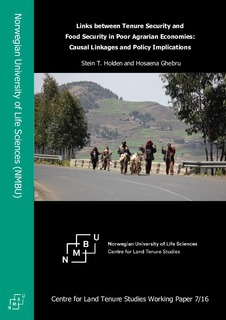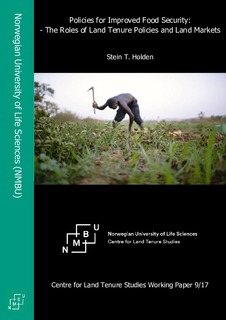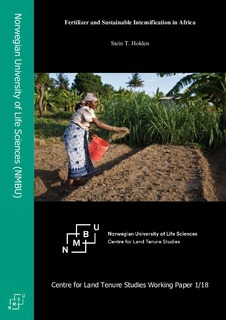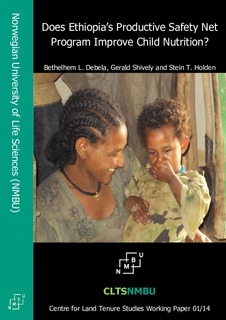Links between tenure security and food security in poor agrarian economies : causal linkages and policy implications
Population growth leads to growing land scarcity and landlessness in poor agrarian economies. Many of these also face severe climate risks that may increase in the future. Tenure security is important for food security in such countries and at the same time threatened by social instability that further accelerate rural-urban and international migration. Provision of secure property rights with low-cost methods that create investment incentives can lead to land use intensification and improved food security.












